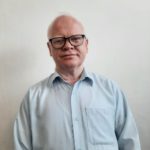Department of Political Science
- About
- Faculty
- Syllabus
- PSOs
- Subjects (COs)
- Infrastructure
- Achievements
- Activities
- Collaborations
- Time Table
Course Offered: B.A. (Political Science)
View Departmental profile of Political Science
- Name of the department: Political Science
- Year of Establishment: 1965
- Name of Programmes/Courses offered (UG, PG, M.Phil, PhD, Integrated Masters; Integrated Ph.D, etc.): UG (UG w.e.f. 1965)
- Name of Interdisciplinary courses and the departments/units involved: Generic Elective courses : BA III Year
- Annual/semester/choice based credit system (programme wise): UG CBCS Semester System (under R.U.S.A for the session 2017-18 and UG annual system w.e.f. 2018-19.
| Sr. No. | Name | Designation | Profile |
| 1. |
Dr. Uttam Kumar Sharma | Assistant Professor | View |
| 2. |
Mr. Harkanwal Swarup | Assistant Professor | View |
Bachelor of Arts (B.A.) with Political Science
- Programme Outcome
Programme Outcomes | |
POs | Students who successfully complete the degree will be able to: |
PO1 | Give applicants the advanced level of comprehension, general competency, and methodical talents needed in business, consulting, education, or public administration. |
PO2 | to learn about current research and development projects as well as their specific field of study. |
PO3 | to be able to show that you can critically analyse problems and organise the duties you’ve been given accordingly. |
PO4 | The course gives students a thorough understanding of political science and piques their interest in furthering their studies in this area. |
- Programme Specific outcome
PSO | B.A. Political-Science Specific Outcomes |
PSO1 | to acquaint students with the fundamental principles and ideas of political theory, including both conventional and modern approaches. |
PSO2 | to help pupils comprehend the institutions and governmental structure established by the Indian Constitution. |
PSO3 | to acquaint students with the fundamental ideas, procedures, and scope of comparative politics, as well as with various methodologies and their advantages and disadvantages. |
PSO4 | to increase students’ understanding of international politics and give them the theoretical tools they need to comprehend and evaluate current trends in international relations. |
PSO5 | to familiarise the students with the national and state legislative processes in India. Additionally, it will broaden their comprehension of Panchayati Raj institutions and their significance to our democracy. |
PSO6 | to introduce the pupils to various public opinion practises and philosophies. They will become more used to qualitative and quantitative social research techniques. |
PSO7 | to familiarise students with the writings and political theories of significant philosophers from both Western and Indian traditions. |
PSO8 | to help students comprehend India’s democratic political system and how it interacts with the current social and economic landscape. |
PSO9 | to help pupils comprehend how various courts and India’s legal system operate. When students are aware of the various rights and obligations that are available, their democratic awareness will grow. |
PSO10 | Key ideas and associated theories are covered in this course’s introduction to peace and conflict resolution. |
PSO11 | to educate pupils about Himachal Pradesh’s politics, economy, and society. It charts Himachal Pradesh’s development from statehood politics to its current Poition. |
PSO12 | Students learn about the various debates surrounding human rights, gender, and the environment in this course. The goal of the course is to give students insight into the fundamental concerns of moral human existence. |
The courses you will learn during this three year course is:
Sr. No | Course Title | Course Code | Nature of Course and Year | COs | Course Outcome |
1 |
Introduction to Political Theory |
POLS 101 |
DSC-1A First Year | CO1 | Understanding the various theories and concepts in detail. |
CO2 | Learn to draw logical conclusions about social and political concerns. | ||||
CO3 | Recognize the importance of theorizing and putting theory into action. | ||||
2
|
Indian Government and Politics |
POLS 102 |
DSC-1B First Year | CO1 | familiar with the discussions surrounding the Indian Constitution’s genesis and development. |
CO2 | Learn about the various government organs and how they work. | ||||
CO3 | Recognize the social and economic concerns that affect how Indian politics operates. | ||||
3 |
Comparative Government and Politics |
POLS 201 |
DSC-1B First Year | CO1 | Students would have a comparative understanding of the structure and purpose of institutions. |
CO2 | Recognize how some of the most important political systems in the world, such as the UK, USA, Canada, and China, operate. | ||||
CO3 | Recognize how various party systems operate in comparison. | ||||
4 |
Introduction to International Relations |
POLS 202 |
DSC-1D Second Year | CO1 | should have a thorough awareness of both historical and modern international relations processes. |
CO2 | Recognize the core theories, ideas, and methods of international relations. | ||||
CO3 | Students will be able to consider other developing centres of power, such as India, and move beyond the scope of Eurocentric International Relations. | ||||
5 | Legislative Support | POLS 203 | SEC-I Second Year | CO1 | Recognize the many levels of organization and operation of Indian legislative entities. |
CO2 | Recognize how India’s grassroots democracy operates. | ||||
CO3 | Become familiar with the fundamentals of many legislative papers, particularly the Budget Document. | ||||
6 |
Public Opinion and Survey Research |
POLS 204 |
SEC-2-Second Year | CO1 | Recognize the significance and function of public opinion in a democracy. |
CO2 | Develop the fundamental ability to gauge public sentiment. | ||||
CO3 | Study scientific research techniques such as sampling, surveying, interviewing, and questionnaires. | ||||
7 |
Themes in Comparative Political Theory |
POLS 301(A)OR |
DSE-1A Third Year | CO 1 | Students would be able to analyse the characteristics of Western and Indian political thought. |
CO 2 | The students would be able to understand how modern Indian political thought has developed. | ||||
CO 3 | The course will introduce students to some of the most influential political theorists in contemporary India. | ||||
8 | Administration and Public Policy: Concepts and Theories |
POLS 301(B) |
DSE-1A Third Year | CO1 | Students will be able to comprehend a summary of the field, including its development. |
CO2 | The many administrative theories would be understandable to the students. | ||||
CO3 | Learn about the creation, application, and evaluation of policy. | ||||
9 |
Democracy and Governance |
POLS 302(A) |
DSC-1B Third Year | CO1 | The structure and procedures of governance at the union and state levels would be clear to the pupils. |
CO2 | Gain insight into the dynamics of new social movements and civic society. | ||||
CO3 | Recognize the constraints of liberalization and the potential of e-governance. | ||||
10 |
Understanding Globalization |
POLS 302(B) |
DSE-1B Third Year | CO1 | The students will have a fundamental grasp of what globalization is, how it works, and why it matters. |
CO2 | The pupils will be able to comprehend the main players in international politics, such as the World Trade Organisation (WTO) and United Nations. | ||||
CO3 | The students’ grasp of current global challenges, including global warming, terrorism, poverty, and inequality, will improve as a result of this course. | ||||
11 |
Democratic Awareness Through Legal Literacy |
POLS 303 |
SEC-3 Third Year | CO1 | Gain a grasp of the Indian legal system’s structure and guiding ideas. |
CO2 | Develop Basic knowledge and abilities to protect the rights promised to citizens and other people | ||||
CO3 | Learn to see law as a source of rights as well as just state-sanctioned regulations. | ||||
12 |
Conflict and Peace Building |
POLS 304 |
SEC-4 Third Year | CO1 | The different sorts of conflict will be clear to the students. |
CO2 | The course will improve the students’ comprehension of non-violent, peaceful conflict resolution methods. | ||||
CO3 | Their understanding of this topic will be improved by the study of diplomatic techniques, including Track I and Track II diplomacy. | ||||
13 |
Society, Economy and Politics in Himachal Pradesh |
POLS 305 |
GE-1 Third Year | CO1 | |
CO2 | |||||
CO3 | |||||
14 |
Human Rights, Gender and Environment |
POLS 306 |
GE-2 Third Year | CO1 | |
CO2 | |||||
CO3 |
Number of PCs =30
Students achievements
S.No. | Session | Meeting/Activity |
1 | 2023-24 | Cleanliness Drive byPolitical Department on October 14th, 2023 एक कदम स्वच्छता की ओर |
MoUs signed
Government College Hamirpur, Department of Political Science
Teacher wise Time Table for the session 2022-23
Name of Teacher
| 10:10- 10:50
| 10:50- 11:30 | 11:30- 12:10 | 12:10- 12:50 | 12:50- 01:30 | 01:30- 02:10 | 02:50- 03:30 |
I | II | III | IV | V | VI | VII | |
Dr Uttam Sharma | BA 2nd SEC (3-4) R No 162 | BA 1st (4-6) R.No 161 | BA 2nd DSC (1-3) R No 62 | BA 3rd SEC (5-6) R No 164 | BA 3rd DSC (1-3) R No 164 | BA 3rd GE (4-6) R No 164 | |
Prof. Harkanwal S Sharma | BA 2nd SEC (1-2) R No 162 | BA 1st (1-3) R No 161 | BA 2nd DSC (1-3) R No 62 | BA 3rd SEC (1-2) R No 164 | BA 3rd DSC (4-6) R No 164 | BA 3rd GE (4-6) R No 164 |



